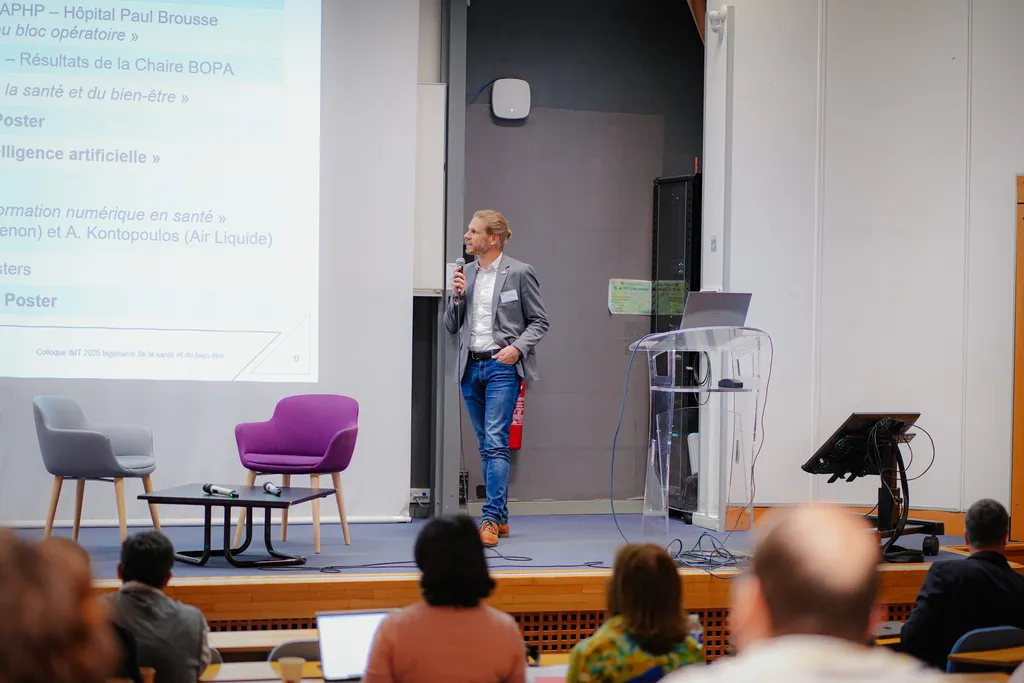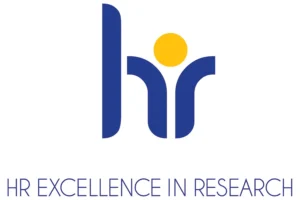On 21 and 22 May, Télécom SudParis hosted the IMT symposium “Engineering for Health and Well-being” on its Évry campus.
The event brought together more than 150 researchers, experts, and academic and industrial partners to discuss the major challenges of tomorrow’s healthcare.
The programme featured sessions on AI applied to health data, innovations in health products, workplace well-being, and the links between health and the environment. These topics were explored through keynote talks, panel discussions, scientific posters, and networking opportunities.
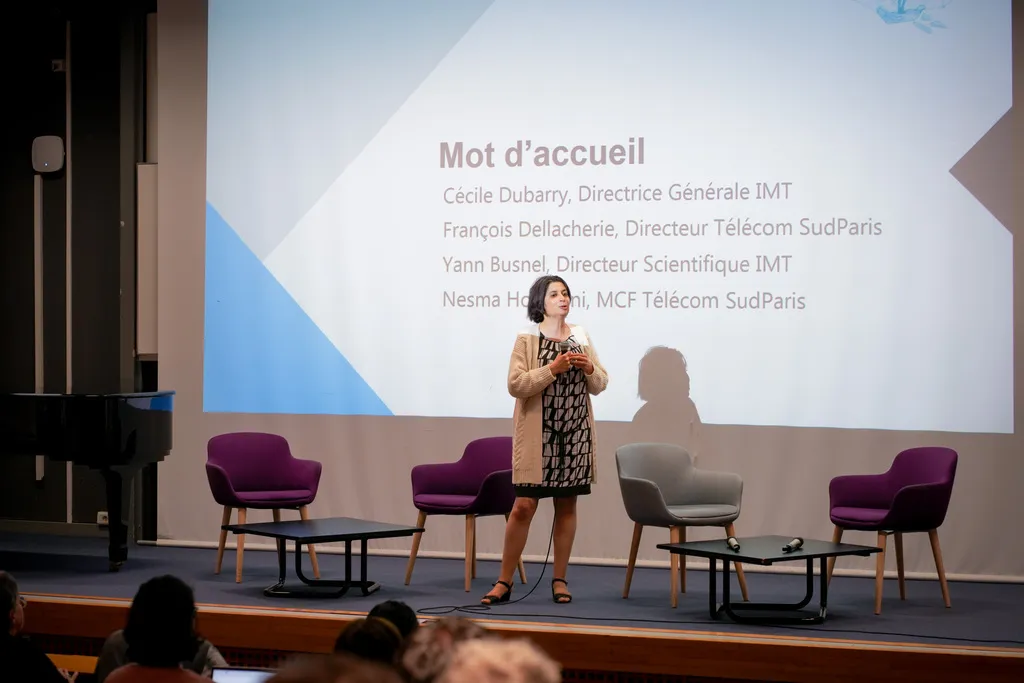
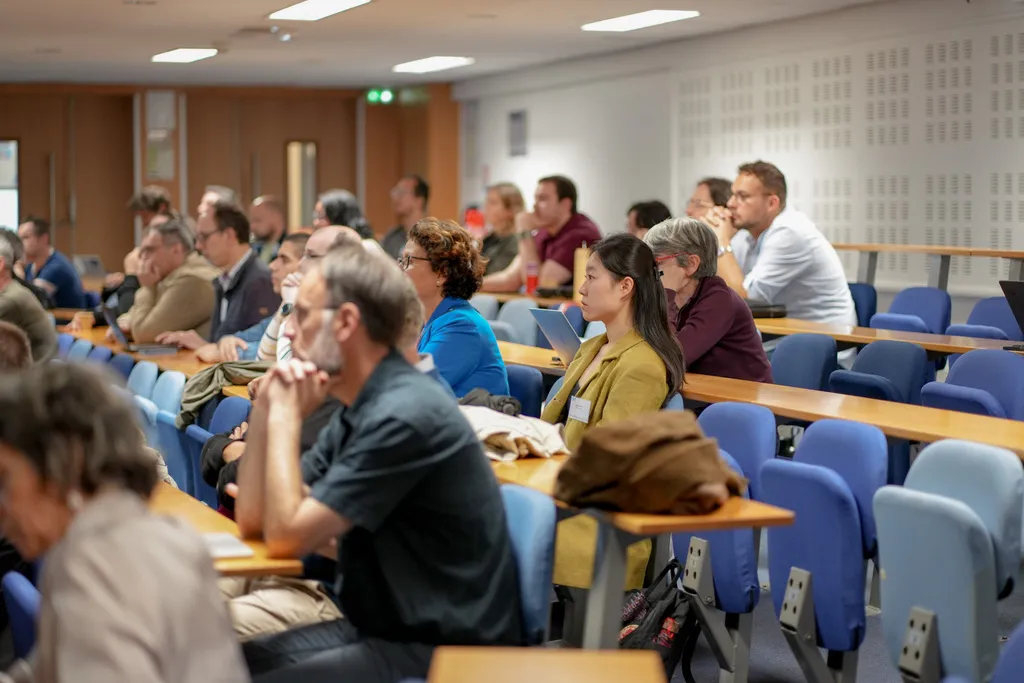
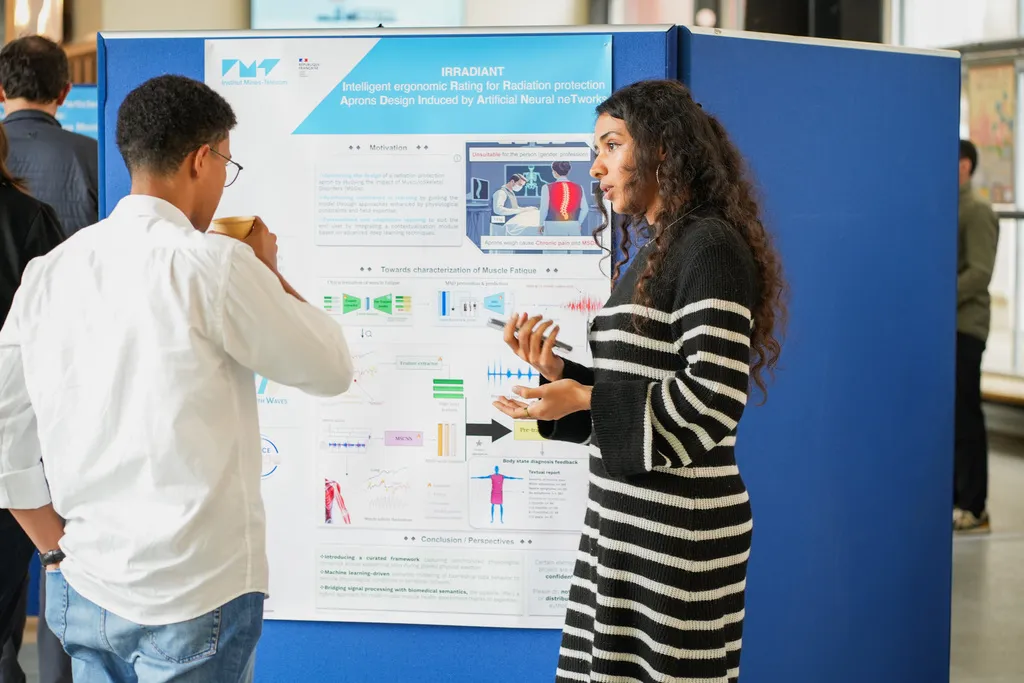
Digital Health, AI and the Environment: Key Focus Areas of the IMT Symposium
The IMT Symposium brought together diverse expertise, sparking the emergence of concrete solutions for more sustainable, inclusive and connected healthcare.
Topics explored included:
- Artificial Intelligence and Health Data – decision-support tools, trustworthy AI, medical cybersecurity.
- Therapeutic Innovations and Medical Devices – 3D printing, drug formulation, gynecological diagnostics.
- Environmental Health – air quality, water reuse, exposure to pollutants.
- Workplace Well-being – impacts of post-Covid remote working, ergonomics in industry.
High-level Contributions
Highlights included:
- Marc Antoine Allard’s keynote on surgical error and how operating theatres can draw inspiration from aviation’s black box principle to enhance knowledge and safety.
- A thematic session on AI in healthcare — from territorial engineering to data security — with Thierry Garaix, Nesma Houmani, Sonia Garcia-Salicetti, and Gouenou Coatrieux.
- Insights from the BOPA Innovation Chair on data-driven surgery, enriched by cross-disciplinary perspectives from Gérard Dubey (sociologist and anthropologist) and Olivia Chevalier (philosopher of science) on the evolution of surgical practices.
- Presentations by Marc Cuggia and Athanasios (Thanos) Kontopoulos on the challenges of AI in health.
- A fascinating talk by Pierre Déchelotte on the digital analysis of patient data to better understand and prevent eating disorders, combining clinical and sociological research.
- A session on environmental health challenges — from water, soil, and river pollution to indoor and urban air quality — with Yves Andres, Frédéric Thevenet, and Valérie Forest.
- Discussions on innovative health products, from pharmaceutical manufacturing to pioneering medical devices for pelvic health (PELVITRACK), with Martial Sauceau, Maria Ines Rè, and Anne-Sophie Caro.
Spotlight on Guest Speakers
- Prof. Dr. Marc Antoine Allard – Surgeon specialising in hepato-bilio-pancreatic diseases at Paul Brousse Hospital (AP-HP). His research covers liver transplantation, liver tumours, and the development of new health research tools using natural language processing.
- Prof. Marc Cuggia – University Professor and Hospital Practitioner at Rennes University Hospital and the University of Rennes I. Head of the Inserm DOMASIA team at the Laboratory for Signal and Image Processing (LTSI), he focuses on the integration and exploitation of big health data, particularly through health data warehouses.
- Prof. Dr. Pierre Déchelotte – Nutritionist and Professor at Rouen University Hospital. His research addresses nutritional disorders, especially in relation to the microbiome and digital technologies.
- Dr. Athanasios Kontopoulos – Scientific Director for AI and Data Science in Health at Air Liquide. He leads the strategic development and practical implementation of data science and AI applications, fosters skills development, and builds collaborative ecosystems in health innovation.
Training Talent for the Healthcare of Tomorrow
The symposium also showcased the health-related training programmes offered by IMT’s Technological Universities, along with major initiatives in digital health, personalised medicine, and workplace health.
It demonstrated IMT’s ability to mobilise its universities and partners around interdisciplinary projects.
The goal : to support health and environmental transitions with engineering solutions that serve people first.
A Strategic Event for Sustainable and Inclusive Health
This symposium is fully aligned with IMT’s 2023–2027 strategy, which aims to help build a more sustainable, resilient, and human-centred society.
The “Engineering for Health and Well-being” theme reflects a systemic, interdisciplinary approach combining innovative technologies, social sciences, management, and strong regional engagement. It draws on all the strengths of IMT — universities, technology platforms, academic and industrial partners, chairs, students, and alumni — to shape the major health transformations of the future.

